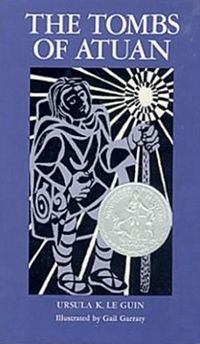why do people move? what makes them uproot and leaveeverything they've known for a great unknown beyond thehorizon? why climb this mount everest of formalities thatmakes you feel like a beggar? why enter this jungle offoreignness where everything is new, strange and difficult?
the answer is the same the world over: people move in thehope of a better life.
the mid-1970s were troubled times in india. i gathered thatfrom the deep furrows that appeared on father's foreheadwhen he read the papers. or from snippets of conversationthat i caught between him and mother and mamaji andothers. it's not that i didn't understand the drift of what theysaid – it's that i wasn't interested. the orang-utans were aseager for chapattis as ever; the monkeys never asked after thenews from delhi; the rhinos and goats continued to live inpeace; the birds twittered; the clouds carried rain; the sun washot; the earth breathed; god was – there was no emergencyin my world.
mrs. gandhi finally got the best of father. in february 1976,the tamil nadu government was brought down by delhi. ithad been one of mrs. gandhi's most vocal critics. the takeoverwas smoothly enforced – chief minister karunanidhi's ministryvanished quietly into "resignation" or house arrest – and whatdoes the fall of one local government matter when the wholecountry's constitution has been suspended these last eightmonths? but it was to father the crowning touch in mrs.
gandhi's dictatorial takeover of the nation. the camel at thezoo was unfazed, but that straw broke father's back.
he shouted, "soon she'll come down to our zoo and tell usthat her jails are full, she needs more space. could we putdesai with the lions?"morarji desai was an opposition politician. no friend of mrs.
gandhi's. it makes me sad, my father's ceaseless worrying. mrs.
gandhi could have personally bombed the zoo, it would havebeen fine with me if father had been gay about it. i wish hehadn't fretted so much. it's hard on a son to see his fathersick with worry.
but worry he did. any business is risky business, and nonemore so than small b business, the one that risks the shirt onits back. a zoo is a cultural institution. like a public library, likea museum, it is at the service of popular education andscience. and by this token, not much of a money-makingventure, for the greater good and the greater profit are notcompatible aims, much to father's chagrin. the truth was, wewere not a rich family, certainly not by canadian standards.
we were a poor family that happened to own a lot of animals,though not the roof above their heads (or above ours, for thatmatter). the life of a zoo, like the life of its inhabitants in thewild, is precarious. it is neither big enough a business to beabove the law nor small enough to survive on its margins. toprosper, a zoo needs parliamentary government, democraticelections, freedom of speech, freedom of the press, freedom ofassociation, rule of law and everything else enshrined in india'sconstitution. impossible to enjoy the animals otherwise.
long-term, bad politics is bad for business.
people move because of the wear and tear of anxiety.
because of the gnawing feeling that no matter how hard theywork their efforts will yield nothing, that what they build up inone year will be torn down in one day by others. because ofthe impression that the future is blocked up, that they mightdo all right but not their children. because of the feeling thatnothing will change, that happiness and prosperity are possibleonly somewhere else.
the new india split to pieces and collapsed in father's mind.
mother assented. we would bolt.
it was announced to us one evening during dinner. raviand i were thunderstruck. canada! if andhra pradesh, justnorth of us, was alien, if sri lanka, a monkey's hop across astrait, was the dark side of the moon, imagine what canadawas. canada meant absolutely nothing to us. it was liketimbuktu, by definition a place permanently far away.
